#Michael Carré
Text

Random youtuber's reaction to the Violin Aria
#Les contes d'Hoffmann#the tales of hoffmann#still not my favorite production#poor Niklausse deserves so much better#but anyway#i thought this comment was funny#opera#opera tag#Jaques Offenbach#Jules Barbier#Michael Carré
16 notes
·
View notes
Text

Vogue Italia October 1991
Carré Otis by Michael Roberts
Styled by Carlyne Cerf de Dudzeele
6 notes
·
View notes
Text
21 marzo … ricordiamo …
21 marzo … ricordiamo …
#semprevivineiricordi #nomidaricordare #personaggiimportanti #perfettamentechic
2022: Eva-Ingeborg Scholz, attrice e doppiatrice tedesca. Nata a Berlino nel 1928, si avvicina alla recitazione dopo la seconda guerra mondiale grazie all’attrice austriaca Hilde Körber, che le offre lezioni gratuite che Eva alterna al suo lavoro di donna delle pulizie. Nel 1948 viene scelta tra 300 candidate per il ruolo principale in 1-2-3 Corona di Hans Müller, al quale seguono altri di gran…

View On WordPress
#21 marzo#Alberta Watson#Anthony Maitland Steel#Anthony Steel#Antonio Guerra#Aristide Baghetti#Chuck Barris#Chuck Hirsch Barris#Damita del Maillo Rojo#Eva-Ingeborg Scholz#Faith Susan Alberta Watson#James Rebhorn#Lawrence Dane#Lawrence Joseph Zahab#Leo Fender#Lili Damita#Liliane Marie-Madeleine Carré#Michael Redgrave#Peter Brown#Pierre Lynn de Lappe#Pietro Mennea#Ricordiamo#Sir Michael Scudamore Redgrave#Tonino Guerra
1 note
·
View note
Text
Starting The Little Drummer Girl!! Didn’t realize it was a period piece! Also didn’t realize it’s a Le Carre. Spy dramas are my bread and butter
1 note
·
View note
Text
The Night Manager will be returning for two more seasons with Tom Hiddleston at the helm once again, it has been reported.
The renewal of the hit adaptation of John le Carré’s 1993 novel, which aired to great fanfare eight years ago, has been greenlit by Amazon Prime and the BBC, according to Deadline.
It is understood that the new seasons about the hotel-manager-turned-spy will be filmed later this year in London and South America.
According to reports, David Farr – who wrote the original series – has been brought back to write season two.
The first series, which won two Emmys and three Golden Globes, featured an impressive cast including Olivia Colman, Elizabeth Debicki, Tom Hollander and David Harewood.
It followed Hiddleston as Jonathan Pine, the former British soldier who is recruited by the manager of a Foreign Office taskforce to infiltrate an arms dealer’s inner circle while he is the night manager of a luxury Cairo hotel.
The series quickly became one of the top-rated UK dramas of 2016 and spawned a number of subsequent le Carré adaptations from The Ink Factory, the production company run by le Carré’s sons Simon and Stephen Cornwell.
The new adaptation will be set in the present day, according to Deadline, and will follow Hiddleston’s Pine facing a new and more deadly challenge after being informed that arms dealer Richard Roper – played by Hugh Laurie – is dead.
Laurie, Colman and Hiddleston all won Golden Globes for their performances in the 2016 spy thriller, which became an international success and even led to rumours at the time that Hiddleston, 43, could be the next James Bond.
While the Bond rumours may have been put to bed, it remains to be seen where the plot may take Pine, seeing as Le Carré‘s novel has no sequel.
When Laurie was asked in 2016 whether the series would return, he said: “It’s based on a novel, we’ve got to the end of the novel and John le Carré has yet to write another novel. So in cold practical terms, no, we’re done.”
Le Carré, who died in 2020, took a very hands-off approach to the first series, but was said to be pleasantly surprised by the alterations Farr made to his novel for the script.
Charlotte Moore, the BBC TV chief, told The Telegraph in 2017 that “Le Carré is very involved” in discussions about the next series, saying: “We wouldn’t be talking with them if he didn’t think it was a good idea.”
Announcing the new series, Ms Moore said: “After years of fervent speculation I’m incredibly excited to confirm that The Night Manager is returning to the BBC for two more series.”
“Of course he wants to take part in it, it’s his work. He will definitely be involved in what we do next,” she added.
The Telegraph has contacted Le Carré’s estate for comment on the announcement of the new seasons.
Previously, Susanne Bier, who won an Emmy for directing the first series, revealed that scripts for a second instalment were “slowly being developed”, but she said writers were wary about being able to create the same hit again.
Elizabeth Debicki, Tom Hiddleston, Susanne Bier and Hugh Laurie at the premiere of the first season
Elizabeth Debicki, Tom Hiddleston, Susanne Bier and Hugh Laurie at the premiere of the first season Credit: Michael Tran/FilmMagic
Farr agreed with this sentiment at the time, telling Variety in 2016 that he was “not keen” to do a second series, adding: “I liked the fact that the story ended where the story ended.
“But that’s entirely personal. Given the characters, there is a potential for something more to happen, and I’m sure someone could find the right idea. But for me it’s done. My simple feeling is that I wouldn’t be able to make the next one as good.”
Hiddleston, 43, will be returning to executive produce the new seasons as well as play Pine.
The British actor said: “The first series of The Night Manager was one of the most creatively fulfilling projects I have ever worked on. The depth, range and complexity of Jonathan Pine was, and remains, a thrilling prospect.”
Simon and Stephen Cornwell said season one proved “a landmark moment for the golden era of television – uniting on-screen and behind-the-camera talent at the top of their game – and an audience reception which was beyond our wildest imagining”.
“Revisiting the story of Pine also means going beyond the events of John le Carré’s original work: that is a decision we have not taken lightly, but his compelling characters and the vision David [Farr] has for their next chapter were irresistible,” they added.
Vernon Sanders, the Amazon MGM Studios head of television, added: “We are elated to bring additional seasons of The Night Manager to our Prime Video customers.
“The combination of terrific source material, the wonderful team at The Ink Factory, a great writer in David Farr, an award-winning director in Georgi Banks-Davies, as well as the talented cast truly make the series the full package.”
78 notes
·
View notes
Text
I am once again consuming John Le Carré novels (audiobooks) in bulk to escape my dread sadness etc. and I do just really enjoy how nakedly Michael Jayston is doing Alec Guinness for George Smiley. Yes. Good choice. Correct.
12 notes
·
View notes
Text
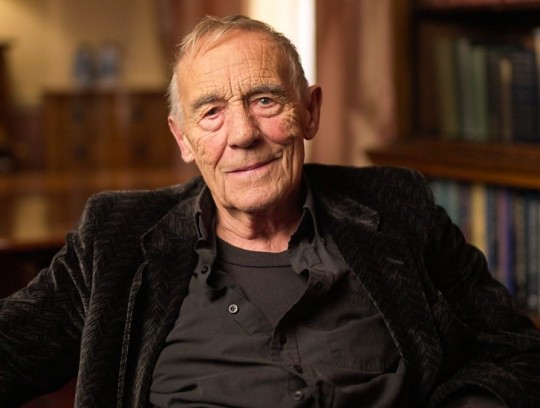
The actor Michael Jayston, who has died aged 88, was a distinguished performer on stage and screen. The roles that made his name were as the doomed Tsar Nicholas II of Russia in Franklin Schaffner’s sumptuous account of the last days of the Romanovs in Nicholas and Alexandra (1971), and as Alec Guinness’s intelligence minder in John Le Carré’s Tinker Tailor Soldier Spy on television in 1979. He never made a song and dance about himself and perhaps as a consequence was not launched in Hollywood, as were many of his contemporaries.
Before these two parts, he had already played a key role in The Power Game on television and Henry Ireton, Cromwell’s son-in-law, in Ken Hughes’s fine Cromwell (1969), with Richard Harris in the title role and Guinness as King Charles I. And this followed five years with the Royal Shakespeare Company including a trip to Broadway in Harold Pinter’s The Homecoming, in which he replaced Michael Bryant as Teddy, the brother who returns to the US and leaves his wife in London to “take care of” his father and siblings.
Jayston, who was not flamboyantly good-looking but clearly and solidly attractive, with a steely, no-nonsense, demeanour and a steady, piercing gaze, could “do” the Pinter menace as well as anyone, and that cast – who also made the 1973 movie directed by Peter Hall – included Pinter’s then wife, Vivien Merchant, as well as Paul Rogers and Ian Holm.
Jayston had found a replacement family in the theatre. Born Michael James in Nottingham, he was the only child of Myfanwy (nee Llewelyn) and Vincent; his father died of pneumonia, following a serious accident on the rugby field, when Michael was one, and his mother died when he was a barely a teenager. He was then brought up by his grandmother and an uncle, and found himself involved in amateur theatre while doing national service in the army; he directed a production of The Happiest Days of Your Life.
He continued in amateur theatre while working for two years as a trainee accountant for the National Coal Board and in Nottingham fish market, before winning a scholarship, aged 23, to the Guildhall School of Music and Drama in London, where he was five years older than everyone else on his course. He played in rep in Bangor, Northern Ireland, and at the Salisbury Playhouse before joining the Bristol Old Vic for two seasons in 1963.
At the RSC from 1965, he enjoyed good roles – Oswald in Ghosts, Bertram in All’s Well That Ends Well, Laertes to David Warner’s Hamlet – and was Demetrius in Hall’s film of A Midsummer Night’s Dream (1968), with Warner as Lysander in a romantic foursome with Diana Rigg and Helen Mirren.
But his RSC associate status did not translate itself into the stardom of, say, Alan Howard, Warner, Judi Dench, Ian Richardson and others at the time. He was never fazed or underrated in this company, but his career proceeded in a somewhat nebulous fashion, and Nicholas and Alexandra, for all its success and ballyhoo, did not bring him offers from the US.
Instead, he played Charles Lutwidge Dodgson (Lewis Carroll) in Alice’s Adventures in Wonderland (1972), a so-so British musical film version with music and lyrics by John Barry and Don Black, with Michael Crawford as the White Rabbit and Peter Sellers the March Hare. In 1979 he was a colonel in Zulu Dawn, a historically explanatory prequel to the earlier smash hit Zulu.
As an actor he seemed not to be a glory-hunter. Instead, in the 1980s, he turned in stylish and well-received leading performances in Noël Coward’s Private Lives, at the Duchess, opposite Maria Aitken (1980); as Captain von Trapp in the first major London revival of The Sound of Music at the Apollo Victoria in 1981, opposite Petula Clark; and, best of all, as Mirabell, often a thankless role, in William Gaskill’s superb 1984 revival, at Chichester and the Haymarket, of The Way of the World, by William Congreve, opposite Maggie Smith as Millamant.
Nor was he averse to taking over the leading roles in plays such as Peter Shaffer’s Equus (1973) or Brian Friel’s Dancing at Lughnasa (1992), roles first occupied in London by Alec McCowen. He rejoined the National Theatre – he had been Gratiano with Laurence Olivier and Joan Plowright in The Merchant of Venice directed by Jonathan Miller in 1974 – to play a delightful Home Counties Ratty in the return of Alan Bennett’s blissful, Edwardian The Wind in the Willows in 1994.
On television, he was a favourite side-kick of David Jason in 13 episodes of David Nobbs’s A Bit of a Do (1989) – as the solicitor Neville Badger in a series of social functions and parties across West Yorkshire – and in four episodes of The Darling Buds of May (1992) as Ernest Bristow, the brewery owner. He appeared again with Jason in a 1996 episode of Only Fools and Horses.
He figured for the first time on fan sites when he appeared in the 1986 Doctor Who season The Trial of a Time Lord as Valeyard, the prosecuting counsel. In the new millennium he passed through both EastEnders and Coronation Street before bolstering the most lurid storyline of all in Emmerdale (2007-08): he was Donald de Souza, an unpleasant old cove who fell out with his family and invited his disaffected wife to push him off a cliff on the moors in his wheelchair, but died later of a heart attack.
By now living on the south coast, Jayston gravitated easily towards Chichester as a crusty old colonel – married to Wendy Craig – in Coward’s engaging early play Easy Virtue, in 1999, and, three years later, in 2002, as a hectored husband, called Hector, to Patricia Routledge’s dotty duchess in Timberlake Wertenbaker’s translation of Jean Anouilh’s Léocadia under the title Wild Orchids.
And then, in 2007, he exuded a tough spirituality as a confessor to David Suchet’s pragmatic pope-maker in The Last Confession, an old-fashioned but gripping Vatican thriller of financial and political finagling told in flashback. Roger Crane’s play transferred from Chichester to the Haymarket and toured abroad with a fine panoply of senior British actors, Jayston included.
After another collaboration with Jason, and Warner, in the television movie Albert’s Memorial (2009), a touching tale of old war-time buddies making sure one of them is buried on the German soil where first they met, and a theatre tour in Ronald Harwood’s musicians-in-retirement Quartet in 2010 with Susannah York, Gwen Taylor and Timothy West, he made occasional television appearances in Midsomer Murders, Doctors and Casualty. Last year he provided an introduction to a re-run of Tinker Tailor on BBC Four. He seemed always to be busy, available for all seasons.
As a keen cricketer (he also played darts and chess), Jayston was a member of the MCC and the Lord’s Taverners. After moving to Brighton, he became a member of Sussex county cricket club and played for Rottingdean, where he was also president.
His first two marriages – to the actor Lynn Farleigh in 1965 and the glass engraver Heather Sneddon in 1970 – ended in divorce. From his second marriage he had two sons, Tom and Ben, and a daughter, Li-an. In 1979 he married Ann Smithson, a nurse, and they had a son, Richard, and daughter, Katie.
🔔 Michael Jayston (Michael James), actor, born 29 October 1935; died 5 February 2024
Daily inspiration. Discover more photos at Just for Books…?
12 notes
·
View notes
Photo
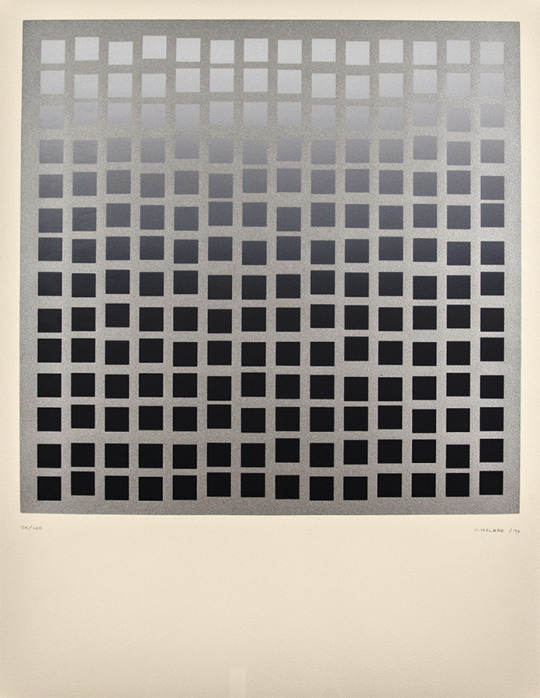

Vera Molnar, 196 Carrés (from the Artiste et Ordinateur Portfolio), (serigraph on paper), 1979 [The Anne and Michael Spalter Digital Art Collection (Spalter Digital). © Vera Molnar]
#art#drawing#geometry#pattern#grid#vera molnar#the anne and michael spalter digital art collection#1970s
75 notes
·
View notes
Text
Actually, while we're shaming people for their 452 unread books, here's a list of unread books of mine of which I own physical copies, attached to the year I obtained them, so that you can all shame me into reading more:
2024: Ways of Being: Animals, Plants, Machines: The Search for a Planetary Intelligence (James Bridle; just started)
2021: Islands of Abandonment: Life in the Post-Human Landscape (Cal Flyn)
2024: Extreme Fabulations: Science Fictions of Life (Steven Shaviro)
2021: The Unreal & The Real Vol. 1: Where on Earth (Ursula K. Le Guin)
2023: A Study in Scarlet (Arthur Conan Doyle)
2023: Ritual: How Seemingly Senseless Acts Make Life Worth Living (Dmitri Xygalatas)
2023: Vibrant Matter: A political ecology of things (Jane Bennett)
2023: The History of Magic: From Alchemy to Witchcraft, from the Ice Age to the Present (Chris Gosden)
2018: Ways of Seeing (John Berger)
2022: An Immense World: How Animal Senses Reveal the Hidden Realms Around Us (Ed Yong)
2020: Owls of the Eastern Ice: The Quest to Find and Save the World's Largest Owl (Jonathan C. Slaught)
2023: My Life in Sea Creatures (Sabrina Imbler)
2020: The Bird Way: A New Look at How Birds Talk, Work, Play, Parent, and Think (Jennifer Ackerman)
2023: Birds and Us: A 12,000-Year History, from Cave Art to Conservation (Tim Birkhead)
2020: Rebirding: Restoring Britain's Wildlife (Benedict Macdonald)
2022: The Song of the Cell: An Exploration of Medicine and the New Human (Siddhartha Mukherjee)
2022: An Anthropologist on Mars (Oliver Sacks)
2021: Sex, Botany & Empire: The Story of Carl Linnaeus and Joseph Banks (Patricia Fara)
2023: At The Mountains of Madness (H.P. Lovecraft)
2019: Invisible Cities (Italo Calvino; I have been trying to finish this forever and am so, so close)
2023: Brian Boru and the Battle of Clontarf (Sean Duffy)
2021: What is History, Now? How the past and present speak to each other (Helen Carr and Suzannah Lipscomb; essay collection, half-read)
2020: Winter King: The Dawn of Tudor England (Thomas Penn)
2022: Caliban and the Witch: Women, the Body, and Primitive Accumulation (Silvia Federici)
2020: Black Spartacus: The Epic Life of Touissant Louverture (Sudhir Hazareesingh; half-read)
2019: The Five: The Untold Lives of the Women Killed by Jack the Ripper (Hallie Rubenhold; 3/4 read)
2022: Lenin on the Train (Catherine Merridale)
2020: October: The Story of the Russian Revolution (China Miéville)
2019: The Villa, the Lake, the Meeting: Wannsee and the Final Solution (Mark Roseman)
2019: Heimat: A German Family Album (Nora Krug)
2018: Maus I: My Father Bleeds History (Art Spiegelman)
2020: Running in the Family (Michael Ondaatje)
2022: Wide Sargasso Sea (Jean Rhys; also never technically "finished" Jane Eyre, but I did my time, damn you)
2023: Time Shelter (Georgi Gospodinov)
2019: Our Man in Havana (Graham Greene; started, left unfinished)
2019: The Spy Who Came In From The Cold (John le Carré)
2021: Why I'm No Longer Talking to White People About Race (Reni Eddo-Lodge; half-read)
2017: Rebel Without Applause (Lemn Sissay)
2022: The Metamorphosis, and Other Stories (Franz Kafka)
2011?: The Complete Cosmicomics (Italo Calvino; vaguely remember reading these when I was maybe 7 and liking them, but I have forgotten their content)
2022: Free: Coming of Age at the End of History (Lea Ypi)
2021: Fairy and Folk Tales of Ireland (W.B. Yates)
Some of these are degree-related, some not; some harken back to bygone areas of interest and some persist yet; some were obtained willingly and some thrust upon me without fanfare. I think there are also some I've left at college, but I'm not sure I was actually intending to read any of them - I know one is an old copy of Structural Anthropology by Claude Levi-Strauss that Dad picked up for me secondhand, which I...don't intend to torment myself with. Reading about Tom Huffman's cognitive-structural theory of Great Zimbabwe almost finished me off and remains to date the only overdue essay I intend to never finish, mostly because the professor let me get away with abandoning it.
There are also library books, mostly dissertation-oriented, from which you can tell that the cognitive archaeologists who live in my walls finally fucking Got me:
The Rise of Homo sapiens: The Evolution of Modern Thinking (Thomas Wynn & Fred Coolidge)
The Material Origin of Numbers: Insights from the Archaeology of the Ancient Near East (Karenleigh A. Overmann)
Archaeological Situations: Archaeological Theory from the Inside-Out (Gavin Lucas)
And, finally, some I've actually finished recently ("recently" being "within the past year"):
The Body Fantastic (Frank Gonzalo-Crussi, solid 6/10 essay collection about a selection of body parts, just finished earlier)
An Entertainment for Angels: Electricity in the Enlightenment (Patricia Fara, also a solid 6/10, fun read but nothing special)
Babel: An Arcane History (R.F. Kuang, 8/10, didactic (sometimes necessary) but effective; magic system was cool and a clever metaphor)
The Sign of Four (A.C. Doyle, 2/10 really racist and for what)
Dr. Space Junk vs. the Universe: Archaeology and the Future (Alice Gorman, 8/10, I love you Dr. Space Junk)
In Search of Us: Adventures in Anthropology (Lucy Moore, 8/10, I respect some of these people slightly more now)
The Dispossessed (Ursula K. Le Guin, 9/10 got my ass)
The Hound of the Baskervilles (A.C. Doyle, 7/10 themez 👍)
#if you see a book on this list that you gave me years ago. well. just know that i failed.#genuinely so much worse than i thought it was but i'm making my best effort to get through them#this is honestly just for fun because i love to list things. user professionalowl bookshelf reveal. please offer reviews if you have them#hooting
6 notes
·
View notes
Text
NOW LISTENING TO THE GREATEST ALBUM EVER MADE ON MY 2+ HOUR WEEKEND WALK
#maybe a tad of an exaggeration#or maybe not#opera#opera tag#les contes d'hoffmann#the tales of hoffman#jaques offenbach#jules barbier#michael carré#Spotify
1 note
·
View note
Note
hey i saw some of your posts in the rogue male tag and wanted to ask if you could recommend some similar books?
Hello! Well, I'm not sure what you think of as similar, because of the particular layered ways in which the prose and plot of Rogue Male work, but here goes with a range.
The Prisoner of Zenda, Anthony Hope: adventurous Englishman goes to East Central Europe, gets involved in politics when he arguably shouldn't, remains committed to his sense of what his personal honor requires even when this raises the likelihood of his ending up extremely dead.
The End of the Affair, Graham Greene: extremely repressed Englishman writes with a mixture of defiance and self-loathing about the most passionate events and relationships of his life.
Watership Down, Richard Adams: life and philosophy -- and intermittent existential crises -- underground. Also much reflection on Englishness, of landscape and otherwise.
The 39 Steps, John Buchan: in which the international desire to keep a fragile peace and the desire of an individual Englishman to follow up Suspicious Dealings are at odds.
Kim, Rudyard Kipling: the original Great Game. Biracial orphan traverses subcontinent, contemplates multiple ways of knowing, seeks liberation from categories created by empires while deciding what his duty to the land of his birth is (I love this book.)
A God in Every Stone, Kamila Shamsie: An Englishwoman and an Armenian archaeologist and a Punjabi soldier traverse multiple continents, and most of all the Indian subcontinent, in an age of seismic change (I love this book too.)
The English Patient, Michael Ondaatje: featuring 'the English patient' as the most unreliable narrator of his own feelings, on the cusp of -- and, later, in the midst of -- a world war that threatens to shatter both present alliances and research into a deep past. (We die containing a richness of lovers and tribes, tastes we have swallowed, bodies we have plunged into and swum up as if rivers of wisdom...)
Silverlight, John Le Carré: I could just recommend his entire oeuvre, but instead I'm going with his last novel, an unusually slim one that, like Rogue Male, contains a very gradual reveal of an emotionally tangled and politically complex history.
#book recommendations#adultbooklr#graham greene#rogue male#watership down#the 39 steps#a god in every stone#kim#rudyard kipling#silverlight#the english patient#john le carré
50 notes
·
View notes
Text
100 Books to Read Before I Die: Quest Order
The Lord Of The Rings by J. R. R. Tolkien
In Search of Lost Time by Marcel Proust
The Great Gatsby by F. Scott Fitzgerald
A Wrinkle in Time by Madeleine L’Engle
Jane Eyre by Charlotte Brontë
Pride and Prejudice by Jane Austen
Frankenstein by Mary Shelley
The Good Soldier by Ford Madox Ford
Under The Net by Iris Murdoch
American Pastoral by Philip Roth
The Unbearable Lightness of Being by Milan Kundera
Animal Farm by George Orwell
Housekeeping by Marilynne Robinson
Anna Karenina by Leo Tolstoy
Atonement by Ian McEwan
Crime And Punishment by Fyodor Dostoyevsky
The Grapes Of Wrath by John Steinbeck
Midnight’s Children by Salman Rushdie
Lucky Jim by Kingsley Amis
Slaughterhouse-Five by Kurt Vonnegut
The Sun Also Rises by Ernest Hemingway
Invisible Man by Ralph Ellison
A Passage to India by EM Forster
Of Human Bondage by W. Somerset Maugham
The Prime of Miss Jean Brodie by Muriel Spark
The Amazing Adventures of Kavalier and Clay by Michael Chabon
If on a Winter’s Night a Traveller by Italo Calvino
The Hitchhiker’s Guide to the Galaxy by Douglas Adams
1984 by George Orwell
White Noise by Don DeLillo
The Count of Monte Cristo by Alexandre Dumas
The Sound and the Fury by William Faulkner
The Stranger by Albert Camus
Lolita by Vladimir Nabokov
Oscar And Lucinda by Peter Carey
The Wind-Up Bird Chronicle by Haruki Murakami
Gulliver’s Travels by Jonathan Swift
Brave New World by Aldous Huxley
As I Lay Dying by William Faulkner
To Kill A Mockingbird by Harper Lee
Lord of the Flies by William Golding
The Portrait of a Lady by Henry James
The Call of the Wild by Jack London
Pale Fire by Vladimir Nabokov
Beloved by Toni Morrison
Tinker Tailor Soldier Spy by John Le Carré
Austerlitz by W. G. Sebald
The Scarlet Letter by Nathaniel Hawthorne
Brideshead Revisited by Evelyn Waugh
Tropic of Cancer by Henry Miller
The Age of Innocence by Edith Wharton
Mrs. Dalloway by Virginia Woolf
The Heart Is a Lonely Hunter by Carson McCullers
The Phantom Tollbooth by Norton Juster
Ulysses by James Joyce
Scoop by Evelyn Waugh
Haroun and the Sea of Stories by Salman Rushdie
Things Fall Apart by Chinua Achebe
Middlemarch by George Eliot
Are You There, God? It’s me, Margaret by Judy Blume
Clarissa by Samuel Richardson
Moby-Dick by Herman Melville
The Handmaid’s Tale by Margaret Atwood
Herzog by Saul Bellow
The Brief Wondrous Life of Oscar Wao by Junot Diaz
Wuthering Heights by Emily Brontë
Don Quixote by Miguel De Cervantes
A Bend in the River by V. S. Naipaul
A Dance to The Music of Time by Anthony Powell
The Strange Case of Dr Jekyll and Mr Hyde by Robert Louis Stevenson
Go Tell It On The Mountain by James Baldwin
Wide Sargasso Sea by Jean Rhys
Catch-22 by Joseph Heller
The Rainbow by D. H. Lawrence
Song of Solomon by Toni Morrison
I, Claudius by Robert Graves
Nostromo by Joseph Conrad
The Tin Drum by Gunter Grass
Madame Bovary by Gustave Flaubert
The Catcher in the Rye by JD Salinger
Charlotte’s Web by E. B. White
Tom Jones by Henry Fielding
His Dark Materials by Philip Pullman
Alice’s Adventures In Wonderland by Lewis Carroll
Little Women by Louisa M Alcott
Great Expectations by Charles Dickens
Portnoy’s Complaint by Philip Roth
Watchmen by Alan Moore
One Hundred Years of Solitude by Gabriel García Márquez
Robinson Crusoe by Daniel Defoe
Tristram Shandy by Laurence Sterne
On the Road by Jack Kerouac
The Big Sleep by Raymond Chandler
The Wind in the Willows by Kenneth Grahame
To the Lighthouse by Virginia Woolf
The Corrections by Jonathan Franzen
The Trial by Franz Kafka
Their Eyes Were Watching God by Zora Neale Hurston
Money by Martin Amis
David Copperfield by Charles Dickens
7 notes
·
View notes
Text
21 marzo … ricordiamo …
21 marzo … ricordiamo …
#semprevivineiricordi #nomidaricordare #personaggiimportanti #perfettamentechic
2022: Eva-Ingeborg Scholz, attrice e doppiatrice tedesca. È stata sposata con lo sceneggiatore George Hurdalek e con Wilfried Seyferth. (n.1928)
2022: Lawrence Dane, Lawrence Joseph Zahab, attore, sceneggiatore e regista canadese. Ha sposato Mary Laurel MacIntosh nel 1995. (n. 1937)
2017: Chuck Barris, Chuck Hirsch Barris, è stato un conduttore televisivo, produttore televisivo, regista, attore e…

View On WordPress
#21 marzo#Alberta Watson#Anthony Maitland Steel#Anthony Steel#Antonio Guerra#Aristide Baghetti#Chuck Barris#Chuck Hirsch Barris#Damita del Maillo Rojo#Eva-Ingeborg Scholz#Faith Susan Alberta Watson#James Rebhorn#Lawrence Dane#Lawrence Joseph Zahab#Leo Fender#Lili Damita#Liliane Marie-Madeleine Carré#Michael Redgrave#Peter Brown#Pierre Lynn de Lappe#Pietro Mennea#Ricordiamo#Sir Michael Scudamore Redgrave#Tonino Guerra
0 notes
Text
24 Books I Want To Read in 2024
This post is based on this tag because after the disaster it was with me picking those books I hope I make better choices for this year. No one tagged me though.
The Neverending Story by Michael Ende
Watership Down by Richard Adams
Holes by Louis Sachar
Wuthering Heights by Emily Bronte
East of Eden by John Steinbeck
Shards of Time by Lynn Flewelling
Going Postal by Terry Pratchett
The Ballad of Songbirds and Snakes by Suzane Collins
Wild Seed by Octavia E. Butler
The Iliad by Homer
The Stone Sky by N.K. Jemisin
The Spear Cuts Through Water
The Dispossessed by Ursula K. Le Guin
The City & the City by China Mieville
The Silmarillion by J.R.R. Tolkien
The Shadow of the Torturer by Gene Wolfe
Jingo by Terry Pratchett
The Devil and the Dark Water by Stuart Turton
The Starless Sea by Erin Morgenstern
Moby Dick by Herman Melville
Tehanu by Ursula K. Le Guin
A Most Wanted Man by John Le Carré
The Unspoken Name by A.K. Larkwood
The Buried Giant by Kazuo Ishiguro
2 notes
·
View notes
Text
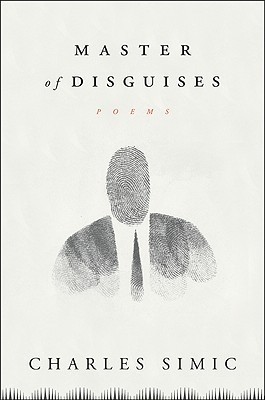
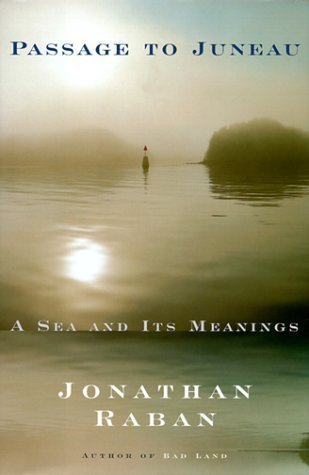
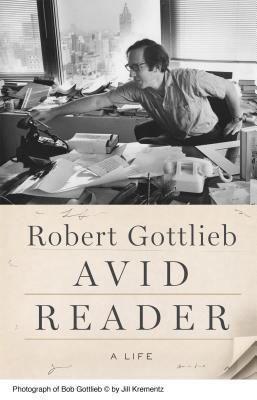
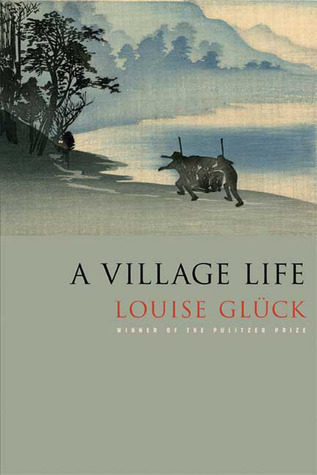
In Memoriam: Authors We Lost in 2023
Master of Disguises by Charles Simic
In this volume of poetry, Charles Simic shows the height of his poetic powers, as its poems mine the rich strain of inscrutability in ordinary life, until it is hard to know what is innocent and what ominous. The face of a girl carrying a white dress from the cleaners with her eyes half-closed. The Adam & Evie Tanning Salon at night. A sparrow on crutches. A rubber duck in a shooting gallery on a Sunday morning. And someone in a tree swing, too old to be swinging, blowing a toy trumpet at the sky. Simic served as poet laureate of the United States from 2007-2008.
Charles Simic passed away on January 9th.
Passage to Juneau by Jonathan Raban
In this volume, travel writer Jonathan Raban takes us along the Inside Passage, 1,000 miles of often treacherous water, which he navigates solo in a 35-foot sailboat. Throughout, Raban offers captivating discourses on art, philosophy, and navigation; an unsparing narrative of personal loss; and insight into the immeasurable divide between the Northwest's Indians and its first European explorers over a gulf of centuries.
Jonathan Raban passed away on January 17th.
Avid Reader by Robert Gottlieb
After editing The Columbia Review, staging plays at Cambridge, and a stint in the greeting-card department of Macy's, Robert Gottlieb stumbled into a job at Simon and Schuster. By the time he left to run Alfred A. Knopf a dozen years later, he was the editor in chief, having discovered and edited Catch-22 and The American Way of Death, among other bestsellers. At Knopf, Gottlieb edited an astonishing list of authors, such as Toni Morrison, John le Carré, and Michael Crichton. In this memoir, Gottlieb writes with wit and candor about the challenges and satisfactions of running America's preeminent magazine.
Robert Gottlieb passed away on June 14th.
A Village Life by Louise Glück
In her eleventh volume of poetry, Louise Glück begins in the topography of a village, a Mediterranean world of no definite moment or place. Glück was known as a lyrical and dramatic poet; while her manner was novelistic, she focused not on action but on pauses and intervals, moments of suspension (rather than suspense), in a dreamlike present tense in which poetic speculation and reflection are possible. She also served as poet laureate of the United States from 2003 to 2004.
Louise Glück passed away on October 13th.
#in memoriam#nonfiction#poetry#reading recommendations#reading recs#book recommendations#book recs#library books#tbr#tbr pile#to read#booklr#book tumblr#book blog#library blog#readers advisory
4 notes
·
View notes
Text
Tinker Tailor Soldier Spy is a 1979 seven-part drama spy mini-series made by BBC TV. John Irvin directed and Jonathan Powell produced this adaptation of John le Carré's novel Tinker Tailor Soldier Spy (1974). The mini-series, which stars Alec Guinness, Ian Richardson, Michael Jayston, Anthony Bate, Ian Bannen, George Sewell, and Michael Aldridge, was shown in the United Kingdom from 10 September to 22 October 1979 and in the United States beginning on 29 September 1980.
4 notes
·
View notes